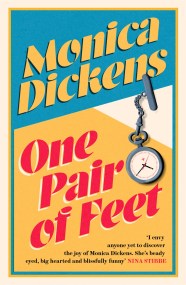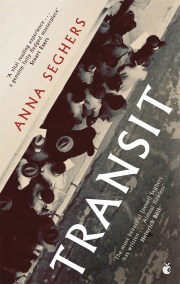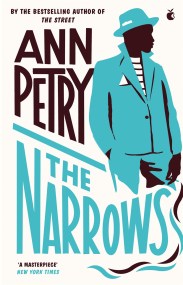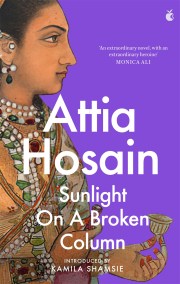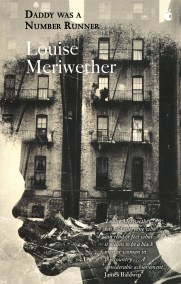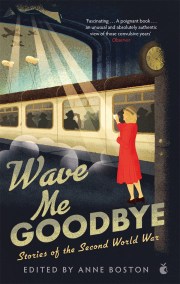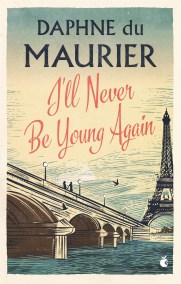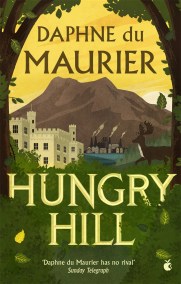Transit
On sale
2nd December 2021
Price: £9.99
INTRODUCED BY STUART EVERS: ‘A genuine, fully fledged masterpiece of the twentieth century; one that remains just as terrifyingly relevant and truthful in the twenty-first’
An existential, political, literary thriller first published in 1944, Transit explores the plight of the refugee with extraordinary compassion and insight.
Having escaped from a Nazi concentration camp in Germany and a work camp in Rouen, the nameless narrator finds himself in the dusty seaport of Marseille. Along the way he was asked to deliver a letter to Weidel, a writer in Paris whom he discovered had killed himself as the Nazis entered the city. Now he is in search of the dead man’s wife. He carries Weidel’s suitcase, which contains an unfinished novel – and a letter securing Weidel a visa to escape France.
Assuming the name Seidler – though the authorities think he is in fact Weidel – he goes from cafe to cafe looking for Marie, who is in turn anxiously searching for her husband. As Seidler converses with refugees over pizza and wine, their stories gradually break down his ennui, bringing him a deeper awareness of the transitory world they inhabit as they wait and wait for that most precious of possessions: transit papers.
‘This novel, completed in 1942, is in my opinion the most beautiful Seghers has written . . . almost flawless’ – Heinrich Boll
An existential, political, literary thriller first published in 1944, Transit explores the plight of the refugee with extraordinary compassion and insight.
Having escaped from a Nazi concentration camp in Germany and a work camp in Rouen, the nameless narrator finds himself in the dusty seaport of Marseille. Along the way he was asked to deliver a letter to Weidel, a writer in Paris whom he discovered had killed himself as the Nazis entered the city. Now he is in search of the dead man’s wife. He carries Weidel’s suitcase, which contains an unfinished novel – and a letter securing Weidel a visa to escape France.
Assuming the name Seidler – though the authorities think he is in fact Weidel – he goes from cafe to cafe looking for Marie, who is in turn anxiously searching for her husband. As Seidler converses with refugees over pizza and wine, their stories gradually break down his ennui, bringing him a deeper awareness of the transitory world they inhabit as they wait and wait for that most precious of possessions: transit papers.
‘This novel, completed in 1942, is in my opinion the most beautiful Seghers has written . . . almost flawless’ – Heinrich Boll
Newsletter Signup
By clicking ‘Sign Up,’ I acknowledge that I have read and agree to Hachette Book Group’s Privacy Policy and Terms of Use
Reviews
Transit belongs to those books that entered my life, and which I continue to engage with in my writing, so much so that I have to pick it up every couple of years to see what has happened between me and it
In political, cultural and artistic terms, Transit offers a vital reading experience: one that is more than just a keen-eyed depiction of a dark and desperate time, but a radical, constantly evolving narrative that delves to the heart of what it is to be human in an inhuman society . . . a genuine, fully fledged masterpiece
One the most respected and important German authors of the 20th century . . . an important untold story of the refugee situation in Second World War-era Europe . . . A masterpiece
No reader will question the author's sincerity as she strives to anatomize the refugee mind
This novel, completed in 1942, is in my opinion the most beautiful Seghers has written . . . I doubt that our post-1933 literature can point to many books that have been written with such somnambulistic sureness and are almost flawless
Transit is an eerily poignant read some eighty years after it was first published . . . It is a thriller, yes, but it is a strange one. It might also be called a tragicomedy. Its brilliance has to with this unpindownable-ness. It has to do with the contrast between the genre elements of the novel and the stark, autobiographical realism grounding the narrative. With the way that Seghers artfully renders her characters - comically, tenderly, at times unsympathetically. In big and small ways, the novel resonates
What makes Seghers's story so convincing is the human authenticity of her characters, and the masterly panorama of Vichy Marseille, that 'tiny spigot through which the world flood of Europe's fleeing thousands sought to pour.' Often as that heart-choking picture has been drawn before, both in factual reports and fiction, Seghers's presentation will stir the reader's imagination to its depth
























